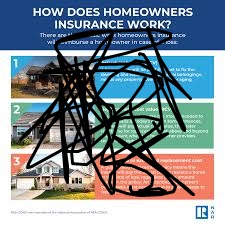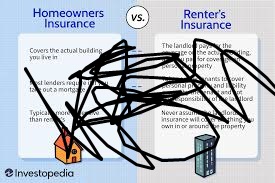Many homeowners insurance policies tend to amount to the additional living expenses (ALE) and it may help to pay some of the additional temporary shelters, meals, and other costs in case your house is uninhabitable due to a covered event. This will ensure that you and your family will not be affected by the standard of living that you might have at the time of repairs or construction.
To illustrate one such instance, in case of fire forcing you to stay at the hotel over a few weeks, the ALE cover is able to cover hotel services, restaurant meals and other services incurred. This cover will allow you to recover once a disaster had struck you when you do not have to shoulder the unexpected housing costs.
Specialty and Limited coverage.
Besides the normal cover, the homeowners insurance will usually have extra covers plus extensions that insure some property or area risk. Common options include:
- Flood Insurance: It includes water-related damages like water heavy rain or hurricane or a water that is rising river. Normal homeowners insurance cover usually does not cover floods.
- Earthquake Insurance: It is insurance that covers damages of the structure and loss of personal property due to seismic movement.
- Identity Theft Protection: It includes a loss coverage due to identity theft or fraud.
- Sewer Backup Coverage: This is the insurance against loss of sewer lines, this is a destruction that happens as a result of clogging or over flowing.
It is also possible to make your policy more personalized with these additions and tailor it to your needs, including local risk coverage, protection of high-value assets, and full-protection coverage.
The Reason Why You Should Change Your Policy.
The best thing to plan right is to know what your homeowners insurance is and what it is not as well. The policies may differ on the basis of insurer, residential location and limits of coverage therefore by simply checking your own policy annually and adding or taking away in line with change of abode, possessions, or exposure to risk, you will find yourself covered well.
There is a feeling of financial stability, reduced stress following unexpected circumstances and, most significantly, the enjoyment of home, which may be obtained through time devoted to the study of every aspect of it, structural coverage, optional add-ons, etc.
Dwelling Coverage: Your Home Structure Insured.
- Thinking of Dwelling Coverage.
- Types of Dwelling Coverage.
One of the primary elements of the homeowners insurance is the dwelling coverage that will cover the physical structure of your house. This insurance covers simple elements that involve walls, roof and floors, plumbing, electrical wiring, built in cabinets and permanent fixtures. It simply includes every essential part of your house that the building is attached to or which fulfills some purpose of its existence. The home owners might find themselves paying very huge out-of-pocket expenses in repairing or rebuilding their homes when they have sustained a major damage, in the absence of dwelling coverage.






